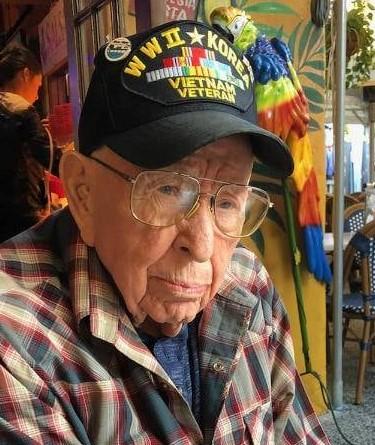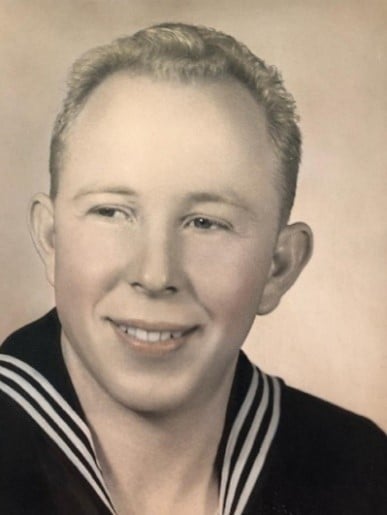BOTTOMS-PAUL
PAUL BOTTOMS

PVT/UNK

Website Source: WWII Heroes – Photographs by Zach Coco
Paul Bottoms grew up in the small town of Newark, Arkansas. His father was a farmer and Paul spent his teenage years helping out on a cotton and corn farm where he plowed the fields the old-fashioned way with beasts of burden. He quit school in the 10th grade and continued to work on the farm, but his life was about to change drastically. When World War II began, he attempted to join the Marine Corps but was turned down due to a weak right eye. Paul soon answered the call to duty after getting his draft notice and reported to the Army. After training he joined a newly formed mechanized anti-aircraft battalion supporting 105mm Howitzers of the 90th Infantry Division. In April 1944 he shipped over to Europe aboard the Queen Mary. The first element of the 90th Division went ashore on D-Day on June 6, 12944. Private Bottoms’ mechanized unit arrived in France on June 8 and landed at Utah Beach where he soon wondered, “What the hell did I get myself into?” Reality set in and Paul found himself smack-dab in the middle of a bloody war
Paul was recognized for his heroism in the face of the enemy in December 1944. In his Bronze Star citation post-dated 8 December 1944, it was noted that in the vicinity of Saar River Operations, an American platoon became pinned down in a pillbox by intense fire from an enemy emplacement. PFC Bottoms fired his machine gun on the enemy position and silenced their guns. Because of his actions, the trapped unit was able to break out and continue advancing. His unit fought on and supported the Battle of the Bulge. The 90th was 40-miles outside of Prague, Czechoslovakia, when they heard that the war was officially over in Europe. Paul and his unit took charge of a railroad yard in Arnstadt, Germany, before he got orders to return stateside.
Young Paul Bottoms was sent to Fort Leonard Wood in Missouri and discharged from the Army. After returning home, he worked for Bell Telephone as a pole climber. He then went on to serve in the Navy where he spent 17-years as an aircraft engine mechanic. He spent the last 10-years of his working life as a civil servant. He has offered the following advice to future generations: “When you get out of high school, join the military. They have a good retirement.”


